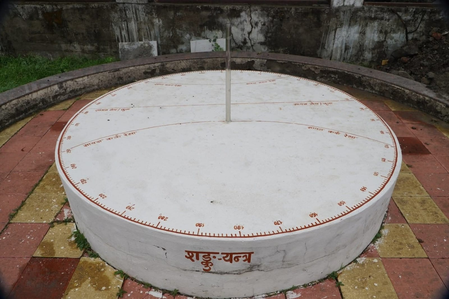
Ujjain, June 21 (IANS) On the occasion of ‘Karka Sankranti’, Madhya Pradesh Chief Minister Mohan Yadav reiterated his longstanding demand to reposition Ujjain as the global centre for timekeeping.
Karka Sankranti, also known as Karkataka Sankranti or Dakshinayana Sankranti, marks the transition of the sun into the zodiac sign of Cancer (Karka Rashi) and the beginning of Dakshinayana, the Sun’s southward journey.
Addressing a gathering at Dongla (village) Observatory near Ujjain, Yadav invoked both science and heritage to support his statement, saying that the moment had come to shift global time calculation from Greenwich to India. He pointed to Ujjain’s ancient role in astronomical calculations and its alignment with the Tropic of Cancer as historically significant.
Chief Minister Yadav asserted that India is progressing in its mission to transition from heritage to development through scientific research. Observing the celestial event of Uttarayan turning to Dakshinayan, he emphasised that this annual transition continues to be tracked from Dongla, which he described as a vital point of Indian time reckoning.
The chief minister remarked that several countries have already acknowledged India’s potential as a hub for global timekeeping and expressed hope that standard time, someday, would be calculated not from Greenwich but from Indian soil.
Ujjain has historically held a central role in Indian astronomy. The ancient observatory known as Vedhshala was established by Maharaja Jai Singh II in the 18th century and was used to calculate time and planetary motion with remarkable precision. In ancient Hindu texts and calendars, Ujjain was often used as the base meridian for astronomical and astrological calculations, long before the 1884 International Meridian Conference established Greenwich as the prime meridian.
This renewed push to assert India’s intellectual and civilizational leadership aligns with broader efforts by the state government to revive traditional knowledge systems. In recent years, there has been a renewed emphasis on using the Vikram Samvat calendar, promoting Vedic education, and institutionalising Sanskrit as a medium of instruction in some schools.
However, critics remain cautious, pointing out the practical challenges of realigning the world’s timekeeping systems and the vast technological infrastructure that currently depends on Greenwich Mean Time.
Ujjain, historically central to Indian astronomical calculations, cannot replace Greenwich as the global prime meridian. Greenwich was internationally adopted in 1884 for its practical role in standardising time for global trade, navigation, and communication. Changing it now would require a complete overhaul of established systems worldwide, causing disruption and confusion, particularly in trade and shipping.
And, which is why Ujjain holds cultural and geographical significance, including its alignment with the Tropic of Cancer, the modern meridian system is firmly rooted in Greenwich-based longitude.
–IANS
sktr/uk
